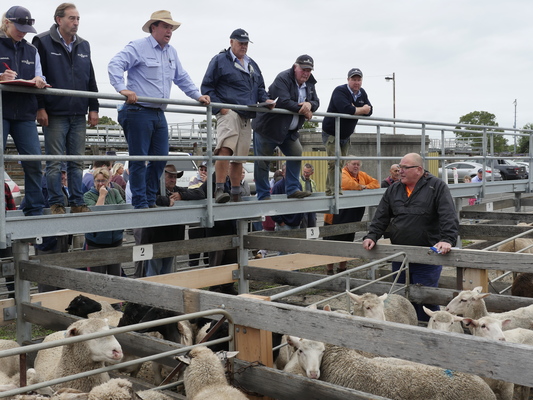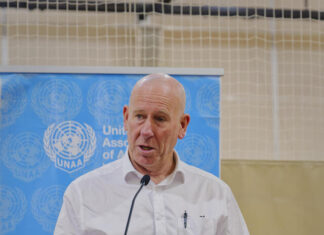Ratepayers could save millions of dollars and potentially reap a land-sale windfall after Geelong’s council administrators this week agreed to close the city’s saleyards.
The 150-year-old yards needed an upgrade costing at least $2.9 million but was losing $200,000 a year as trade declined, a council report said.
Geelong ratepayers faced footing the bill despite a separate report revealing that three quarters of stock traded at the site came from outside their municipality.
The previous council had planned to sell the yards, off Weddell Rd and amid suburban North Geelong. A 2014 report to council valued the site at up to $5.4 million.
But after Tuesday night’s decision the yards would now finally close to sheep and cattle sales at the end of the month, City Hall said.
The administrators would “engage” the yards’ poultry operators about “the future of sales” while also developing a precinct plan for the site.
The administrators first closed the yards to sheep and cattle a year ago due to workplace safety issues. An outcry from farmers prompted the administrators to order repairs so sheep sales could resume but they declined to approve work for cattle to return given the high costs and dwindling trade.
Reports to council had been recommending the closure of the saleyards since 1998 “yet a decision has never been made”, said administrators chair Kathy Alexander.
“In making tonight’s decision to permanently close the Geelong Saleyards we’ve taken into account an extensive amount of information and community feedback, including written notification from two selling agents confirming they would not have provided a service if the Geelong Saleyards had reopened for cattle sales, due to the cost of business,” she said.
An independent analysis identified Colac as a potential site for a new regional saleyards, Dr Alexander said.
“We’ll continue to work with all stakeholders, including our livestock farmers and Colac Otway Shire to ensure a smooth transition of sales.”
The future of the yards was further darkened last month when news reports linked it without evidence to positive tests for Q fever among Geelong council staff.
Any actual saleyards outbreak of the disease, commonly contracted from livestock, could have a contamination zone spreading to Geelong West, Norlane, Rippleside and Drumcondra.
Saleyards set to shut

Digital Edition
Subscribe
Get an all ACCESS PASS to the News and your Digital Edition with an online subscription
School bus concerns
Geelong mayor Stretch Kontelj has called on the state government to address a “systemic failure” in ensuring the region's students are able to travel...








